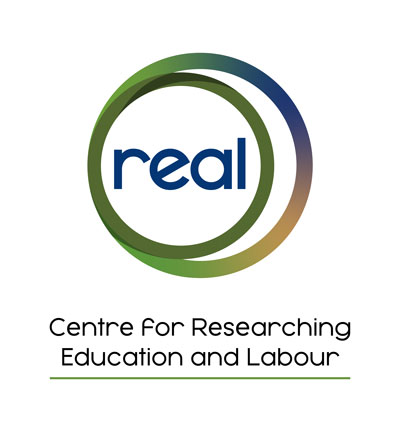Working papers
Linking Knowledge, Education and Work
Exploring occupations
Debates rage about how education should prepare people for work. One view suggests that to strengthen the relationship between education and the world of work, students need to experience novel situations, in particular those that are marked by ‘uncertainty and indeterminacy’, critically reflect on the world of work and build opportunities for case study research, formal and informal learning (Kinsella & Pitman, 2012; Lave & Wenger, 1991; Schön, 1983). A contrasting view argues that acquisition of systematically organised bodies of knowledge followed by or together with work-based learning is necessary for any educational programme that is intending to prepare students for work (Allais, 2014; Barnett, 2006; Muller, 2009; Wheelahan, 2010; Winch, 2010; Wolf, 2002; Young & Muller, 2014).
We support the second view (Allais & Shalem, 2018). In this publication we will show how this view helps in thinking about the ways in which knowledge, qualification and work are interrelated to support the preparation of skilful employees (henceforth referred to as occupational workers or workers) and to maintain their well-being during work. This publication provides a conceptual interrogation of five key concepts which matter in the question of preparation for work: occupation, work, knowledge and skill, labour market and qualifications. This kind of analysis is important because terms can be solidified in policy documents without a clear understanding of what underpins them; similarly, policies can be misleading or poorly implemented because of lack of conceptual understanding.
Just Transitions and the Green Economy
Navigating the fault lines
Mike Ward
Businesses and communities cannot thrive if the environment on which they depend and the societies in which they are situated fail. If businesses and communities protect and restore the natural resources that sustain them, and workers and communities generate sufficient and equitable economies, then as a country we are more likely to address inequality, reduce poverty and increase employment in ways that are sustainable and just. The current trajectory of increasing climate change impact, decreasing natural resources such as water, rapid technological change, and increasing inequality, poverty and unemployment requires significant change in the way we do business and the way we live. All sectors of our economy are well positioned to contribute to these changes, both through their internal operations and through the decisions they make with regard to the services they offer.
As the changes in environmental, social, technological and economic systems become both more urgent and more conscious, so the potential to shape these transitions in ways that are just becomes more important from both a business and a moral perspective. Two broad questions regarding the many sectors within our economy have emerged in this changing context. The first is how much responsibility companies and organisations should have for the impact of their clients. The second is to what extent the processes and products of the businesses can influence their clients’ behaviour.
Banking for a Sustainable Economy
Mike Ward and Ruan Naude
The Task-Force on Climate-related Financial Disclosure (TCFD) and the Principles for Sustainable Banking are two international initiatives driving a stronger focus on, and disclosure of, the relationship between the banking sector and sustainable development. In South Africa, National Treasury and the banking sector are examining the roles and responsibilities of banks with regard to issues such environmental sustainability, social development and economic growth. It is likely in the near future that the current voluntary agreements such as the Principles for Managing Environmental and Social Risk are supplemented with more stringent requirements for disclosure by the banks on sustainability issues. In April 2019 a legal opinion on pension funds in South Africa suggested that the boards of these funds have a legal obligation to account for the financial effects of their investments on climate change and the effects of climate change on their investments. Failure to do so would likely amount to a breach of duty by the directors. Although this opinion is located within slightly different legislation to that governing the banking sector, the increasing focus on the finance sector does and will have direct implications for the banking sector. It is with these implications in mind that the BankSETA has commissioned this study into the occupational and skills implication for the banking sector of a greater focus on environmental and social risks and opportunities.
Developing Competencies for a Just Transition of the SA Banking Sector
Nicola Jenkin and Ruan Naude
Digitalisation and the Fourth Industrial Revolution is a dominant theme of current business, occupation and labour discourse. Depending on the lens or source of information, this is seen as a positive or negative, and with reference to jobs, the majority paint a generic picture of job losses. This discussion is also set within the context of South Africa’s readiness for the digital ‘revolution’.
This study aims to better understand the potential impact of digitalisation on jobs and skills in the retail banking sector in South Africa. The intention is to provide an informed evidence-base, from which BankSETA can set out a more informed plan of action and support for its members to transition towards a digital future, with reduced potential job losses and enhanced just jobs.


